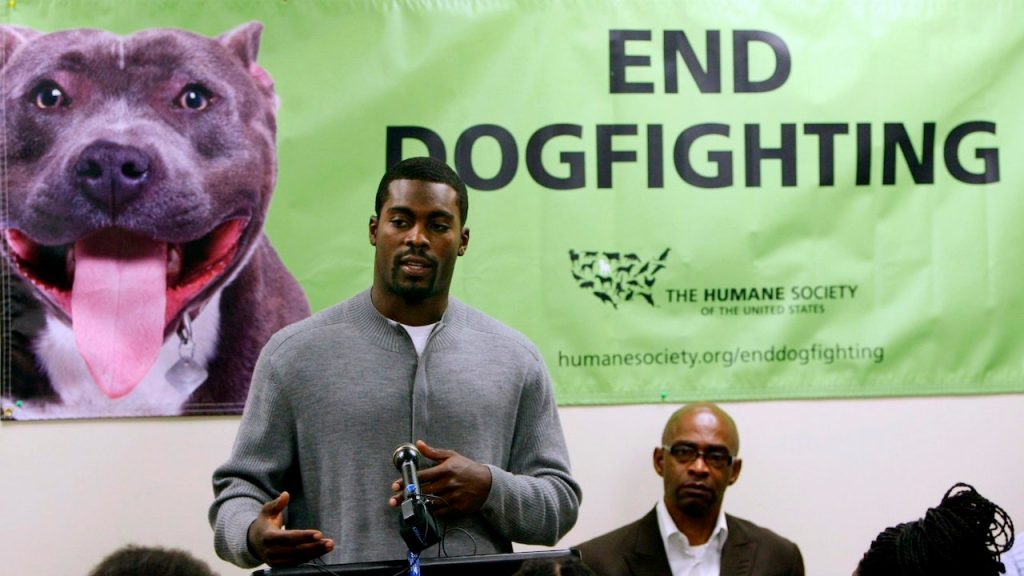Michael Vick’s potential appointment as head football coach at Norfolk State University has reignited discussions about his past involvement in dog fighting, a crime that significantly impacted his NFL career and public image. While the university has yet to officially confirm the hiring, reports have spurred a response from PETA, an animal rights organization that has closely followed Vick’s case since his 2007 indictment. PETA President Ingrid Newkirk, reflecting on her past interactions with Vick, described him as a “charming, charismatic psychopath,” based on her perception of his demeanor during an interview conducted while his sentencing was under consideration. Despite her reservations about his character, Newkirk stated that PETA’s current focus is on collaborating with law enforcement to combat ongoing dog fighting activities, rather than solely on Vick’s past actions. This stance suggests a shift in the organization’s approach, possibly recognizing Vick’s efforts to rehabilitate his image and contribute to anti-dog fighting initiatives.
Vick’s involvement in dog fighting came to light through a series of events beginning with his father’s revelations to The Atlanta Constitution-Journal. Michael Boddi, Vick’s father, disclosed that his son had been organizing dogfights at their family home in Newport News, Virginia. This information, coupled with a subsequent drug investigation targeting Vick’s cousin, led authorities to uncover compelling evidence of illegal dog fighting activities on one of Vick’s properties. The discovery resulted in a July 2007 indictment charging Vick and three others with running an interstate dog fighting operation known as “Bad Newz Kennels.” Vick eventually pleaded guilty to conspiracy charges and admitted to participating in the killing of several dogs through brutal methods including hanging, beating, and drowning.
The fallout from Vick’s guilty plea was swift and severe. He served 21 months in federal prison, a period that effectively interrupted his promising NFL career and irrevocably tarnished his reputation. While he managed to return to professional football after his release, signing with the Philadelphia Eagles, the shadow of his crimes continued to loom large, shaping public perception of him. Animal rights organizations, including PETA, played a significant role in maintaining public awareness of Vick’s past.
PETA’s engagement with Vick’s case extended beyond public statements and condemnation. The organization facilitated Vick’s participation in their “Developing Empathy for Animals” course in 2007, seemingly aiming to contribute to his rehabilitation. However, a 2009 blog post by PETA expressed skepticism about Vick’s professed commitment to becoming an advocate against dog fighting, suggesting that his pronouncements were primarily motivated by his desire to reinstate his NFL career. This skepticism underscored the ongoing tension between Vick’s attempts to rebuild his image and the enduring impact of his past actions.
Vick’s NFL comeback, which began with the Philadelphia Eagles in 2009, marked a new chapter in his career, albeit one perpetually intertwined with his past. He continued to play for the New York Jets and Pittsburgh Steelers before retiring from professional football in 2015. His post-NFL career has included various roles, including broadcasting and coaching, leading to the recent reports of his potential appointment at Norfolk State. This prospective hiring has once again brought his past into sharp focus, prompting renewed scrutiny and debate about his suitability for a leadership position, particularly within an educational institution.
The controversy surrounding Vick’s potential hiring at Norfolk State highlights the complex and often enduring consequences of criminal behavior, particularly when it involves animal cruelty. While some may argue that Vick has served his time and deserves a second chance, others remain deeply troubled by the nature of his crimes and question his capacity to serve as a positive role model for student-athletes. The university’s decision, if confirmed, will undoubtedly be met with mixed reactions, underscoring the lasting impact of Vick’s past and the ongoing debate about redemption and forgiveness in the face of serious transgressions.

